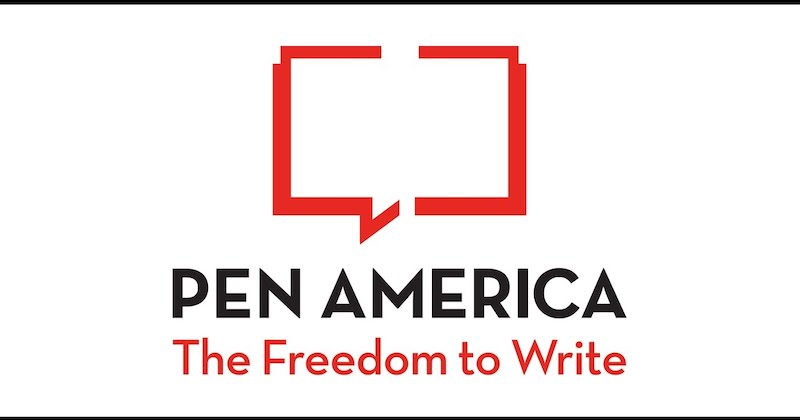
Protesting writers welcome dialogue with PEN and call for an external review.
Last Wednesday, a group of prominent authors—including Naomi Klein, Michelle Alexander, Hisham Matar, and Isabella Hammad—signed an open letter to PEN America in which they announced their decision not to participate in this year’s PEN World Voices Festival due to the organization’s inadequate response to the unfolding genocide in Gaza. The authors accused PEN America of “betraying the organization’s professed commitment to peace and equality for all, and to freedom and security for writers everywhere” by failing to call for a ceasefire.
In the days that followed, several other writers—including Lorrie Moore, Hari Kunzru, and Emily Wilson—pulled out of the 2024 festival and added their names to the letter.
Yesterday, PEN America published a lengthy response in the form of an open letter to the wider PEN America community. The letter—in which the organization did finally call for a ceasefire and committed to making “a substantial financial contribution” to the Netherlands-based PEN emergency fund for distribution to Palestinian writers in what it describes as an “expansion of existing support”—details PEN’s desire to meet with the authors in public forum to foster a better understanding of PEN’s position and discuss “sharply divergent views on questions of deep consequence.”
This afternoon, the original group of protesting writers sent a reply which welcomed the shifting of PEN America’s position and policies in response to recent feedback, but which also drew attention to the “regrettable mischaracterization of our position in your press briefings which needs to be corrected.”:
You write, “As an organization open to all writers, we see no alternative but to remain home to this diversity of opinions and perspectives, even if, for some, that very openness becomes reason to exit.” Our exit from the festival had nothing to do with any other writer’s opinions, nor with PEN’s openness to a diversity of perspectives. Instead, our letter identifies a series of specific failures to act with urgency and substance in the face of ongoing war crimes, including a failure to use language to name these crimes as such under international humanitarian law.
Perhaps most significantly, the authors requested “a thorough review and examination of the conduct and performance of PEN America with regard to the tragic consequences of the Israeli occupation that is currently playing out and has played out in Israel and Palestine for several decades,” noting that “criticisms of bias in this area have been recurring over many years, and only this systematic approach can identify if there is a pattern.”
Here is the reply in full:
Dear Suzanne, Clarisse and all of our friends at PEN America,
Thank you for your response to our letter of March 14th 2024, and your willingness to engage in dialogue. As a first point of call, there has been a regrettable mischaracterization of our position in your press briefings which needs to be corrected. You write, “As an organization open to all writers, we see no alternative but to remain home to this diversity of opinions and perspectives, even if, for some, that very openness becomes reason to exit.” Our exit from the festival had nothing to do with any other writer’s opinions, nor with PEN’s openness to a diversity of perspectives. Instead, our letter identifies a series of specific failures to act with urgency and substance in the face of ongoing war crimes, including a failure to use language to name these crimes as such under international humanitarian law.
It is clear from your letter that there has been a great deal of work happening at PEN America, that policies, positions and framings are shifting rapidly in response to feedback. We are encouraged that you appear to be interested in a thoughtful period of introspection and self-appraisal. Towards this end, we believe that you would do well to appoint a group of individuals whose integrity and impartiality is beyond reproach, and who would enjoy the trust of all parties in these turbulent times, to conduct a thorough review and examination of the conduct and performance of PEN America with regard to the tragic consequences of the Israeli occupation that is currently playing out and has played out in Israel and Palestine for several decades. For while this has come to a head since October 7, criticisms of bias in this area have been recurring over many years, and only this systematic approach can identify if there is a pattern. Such a group would be empowered to consider whether PEN America, in all of its entities, has acted in a way that is consistent with its values, stated goals and mission. Representatives of PEN International and/or other sister chapters ought to be involved. Obviously, the composition of such a group should be one that enjoys the trust and confidence of all parties, including ourselves, and we would invite you to establish both this group and its terms of reference as soon as possible. Done properly, in good time and without fear or favour, this would be a way to put this matter behind us, to give faith that you are reflecting and considering in a thorough and independent way, and give you an opportunity to learn and adjust as appropriate.
With best wishes,
The undersigned authors:
Michelle Alexander, Kayode Ani, Kristen Arnett, Ruha Benjamin, Susan Muaddi Darraj, Michael Elias, Isabella Hammad, Sabrina Imbler, Rula Jebreal, Balsam Karam, Dima Khalidi, Naomi Klein, Hari Kunzru, Hisham Matar, Maaza Mengiste, Lorrie Moore, Neel Mukherjee, Morgan Parker, Selby Wynn Schwartz, Thelma Seto, Ani Kayode Somtochukwu, Emily Wilson, Worker Writers School.
Dan Sheehan
Dan Sheehan is the author of the novel Restless Souls (Ig Publishing) and Editor-in-Chief of Book Marks.



















